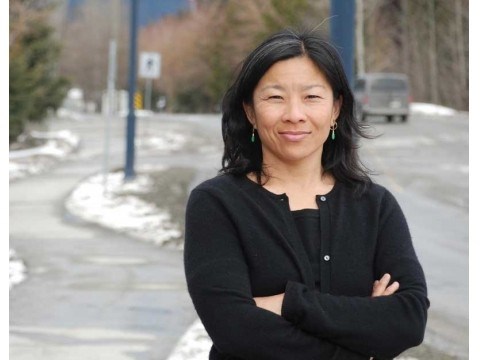Almost $100,000 will be flowing to Whistler from Environment Canada to make the Whistler2020 program bigger and better.
The federal grant money is a boon for the oft-misunderstood Whistler Centre for Sustainability, whose staff plans to use the money to deepen the commitment of its 50 partners in Whistler to the sustainability plan and also get more partners onboard.
"It's great to be able to get some grant funding to do our work in Whistler," said the centre's executive director Cheeying Ho.
That funding comes on top of another recent accolade: an award for innovative process from the Federation of Canadian Municipalities for one of the centre's first outside projects: the Integrated Community Sustainability Plan for Williams Lake.
And while the new funding and the award are signs that the centre is on the right path, it's still a tough road ahead making ends meet and ultimately relying less on Whistler's seed funding.
That's what Councillor Ted Milner is concerned about.
"My beef is it really looks like it's going to be very difficult to achieve," said Milner.
"It's cut a very difficult target."
Indeed, in order to break even in 2010 the centre must bring in more than $700,000 in revenues. Most of that money goes towards the centre's payroll.
To date, the RMOW is the centre's biggest client.
It pays more than $192,000 every year as a contract service to the centre for it to monitor, report and manage the municipality's Whistler2020 program.
This year's budget also has an $85,000 line item for other RMOW contracts. For example, this year the centre is getting $18,000 to manage Whistler's Cultural Tourism Strategy, designed to build, develop and enhance the role of arts, culture and heritage in the community. The initial funding came to the RMOW as grant money for being a cultural capital.
And then there's the $30,000 item for in-kind support, which includes the space at municipal hall used by the centre's staff.
All of that adds up.
And when the $120,000 in RMOW seed funding is factored in, it amounts to more than half the centre's $700,000-plus budget.
Milner wants to know if it's worth it for Whistler. However, he said questioning the Whistler Centre for Sustainability at municipal hall isn't easy.
"It's become so sacred that nobody seems to be able to even talk about it," he said.
"There's a very large investment by the municipality using hotel tax and otherwise and I think it needs to be demonstrated that we're getting a return on our money."
So far, said Milner, the centre has failed to do that.
Councillor Chris Quinlan, however, disagrees.
He is one of the centre's board members and believes Whistler is getting a return on its investment.
"The centre does a number of different things," he said. "It allows us to outsource at a more cost effective means the Whistler2020 engagement process. It also drives awareness of Whistler and its sustainability."
It is tasked with becoming self-sufficient in the next year and a half. That's when the $120,000 in seed funding runs out.
"They have to make sales," said Quinlan. "They have to build a business so that they can operate on their own."
He points to other ventures like the Whistler Film Festival that the municipality helped in the early days with seed funding.
Still, it's no small feat looking for grant funding and fees for services in today's economic climate.
Ho admits that 2009 was a very difficult year.
"Grant funding was really tough," she said, adding that local governments were also tightening their purse strings in the economic downturn.
This year, however, appears to be more optimistic with the $100,000 in new grant monies and indications that other projects may be coming through.
According to Ho's projections, she needs to bring in $230,000 in advisory services and $35,000 in grants in order to break even.
She can't help but be energetic, however, despite the funding challenges.
"The idea is so great of using Whistler as a living laboratory," she said.
"Whistler hasn't solved anything. We're on a journey."
It still remains to be seen where that journey will take in the centre in the years to come.




